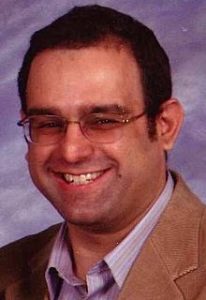Machine Learning Applications for Earth Observation
32 Vassar St
Cambridge, MA 02139
USA
Geoscience and Remote Sensing, Aerospace and Electronic Systems, Computer, Microwave Theory and Techniques, Robotics and Automation
Prof. David J. Lary, Hanson Center for Space Sciences https://davidlary.info
Machine learning has already proved immensely useful in a wide variety of applications in science, business, health care and engineering. Machine learning allows us to learn by example, and to give our data a voice. It is particularly useful for those applications for which we do not have a complete theory, yet which are of significance. Machine learning is an automated implementation of the scientific method, following the same process of generating, testing and discarding or refining hypotheses. Machine learning has found many applications in remote sensing. These applications range from retrieval algorithms to bias correction, from code acceleration to detection of disease in crops, from classification of pelagic habitats, to rock type classification. As a broad subfield of artificial intelligence, machine learning is concerned with algorithms and techniques that allow computers to ‘learn’ by example. The major focus of machine learning is to extract information from data automatically by computational and statistical methods. Over the last decade there has been considerable progress in developing a machine learning methodology for a variety of Earth Science applications involving trace gases, retrievals, aerosol products, land surface products, vegetation indices, and most recently, ocean applications. We will review some examples of how machine learning has already been useful for remote sensing and some likely future applications with the hope that this will promote active collaboration.
David received a First-Class Double Honors B.Sc. in Physics and Chemistry from King’s College London with the Sambrooke Exhibition Prize in Natural Science, and a Ph.D. in Photochemical Computer Modeling of Atmospheric Chemistry from the University of Cambridge. The thread running through all the research is physics in service of society through the use of data driven insights using observation and automation to facilitate discovery, with a focus in the area of human health and the health of infrastructure, smart and resilient cities and infrastructure, and global sustainable development. A key part of this is the analysis of massive data sets (BigData) using machine learning and high performance computing, and IoT devices for smart decision making. David held positions at Cambridge University from 1991-2001, including being a faculty member and receiving a Royal Society University Research Fellowship. In 2000 the chief scientific adviser to the British Prime Minister recommended David to be appointed as a Cambridge University lecturer in Chemical Informatics in the world’s first department of Chemical Informatics. In 2001 David was invited to join NASA for his work on data assimilation as the first distinguished Goddard fellow in Earth Science and stayed at NASA till 2010, receiving six NASA awards for his research and technology development. While at NASA he worked in several offices including the Data Assimilation Office, the Atmospheric Chemistry and Dynamics Branch, the Science Integration and Visualization Office, and the NASA Goddard Earth Sciences Data and Information Services Center. In 2010 David joined the Hanson Center for Space Science. He is about to deploy a network of airborne allergen sensors across Chattanooga, TN, for a smart city asthma and allergy early warning system. David founded two companies, Machine Data Learning and Data Driven Decisions. Data Driven Decisions LLC is a consulting company founded to provide predictive data analytics for train track health.
Please register at: https://www.eventbrite.com/e/csail-alliances-lecture-series-with-ieee-boston-machine-learning-applications-for-earth-observation-tickets-33714839994
Meeting Location: MIT CSAIL Stata Center, Building 32, 32 Vassar Street, Cambridge MA.

